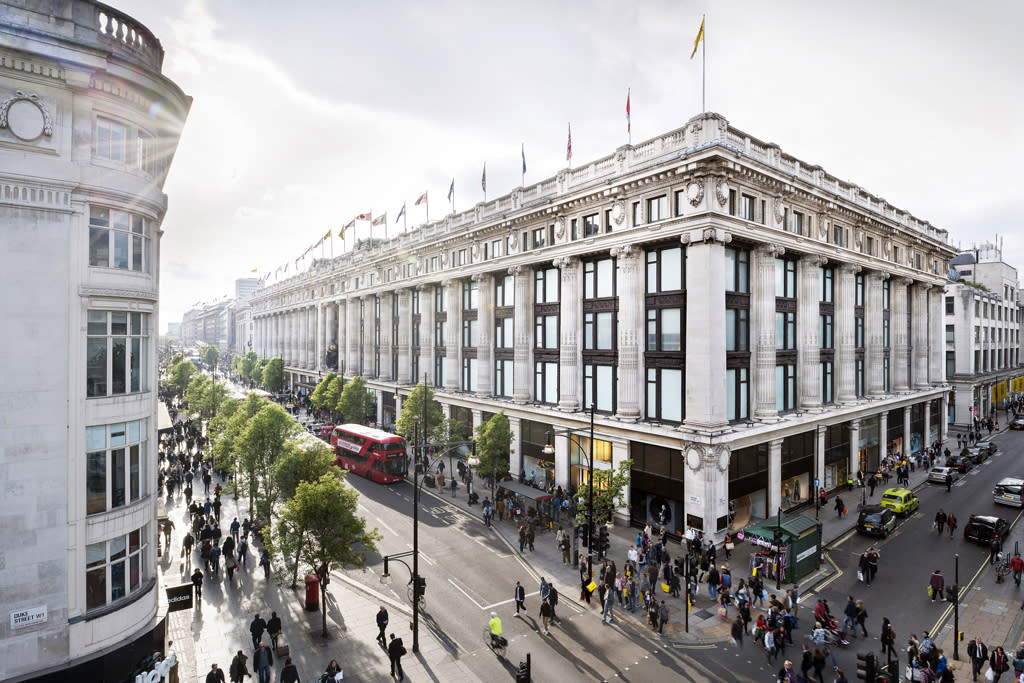Selfridges Is Eliminating 450 Jobs After the ‘Toughest Year’ in Recent History

Click here to read the full article.
With sales expected to be “significantly” less than they were in 2019, Selfridges has made the decision to reduce its headcount.
The British luxury retailer has announced plans to cut 14% of its workforce, or about 450 jobs. In addition, the company is “carefully examining” other opportunities to cut costs, including reviewing all nonessential expenses and pausing projects and initiatives “when prudent to do so.”
More from Footwear News
Victoria's Secret Parent Implements 850 Layoffs as It Looks to Cut $400M in Expenses
Jobless Claims Rise for the First Time Since the Pandemic Swept the US in March
Dollar Tree and Family Dollar Are Hiring -- Here's How to Get a Job
“As a creative business at the forefront of retail, we have a proud history of leading the way; however, the speed and magnitude of what is happening right now and the impact on trading means we must make some fundamental changes to our organization to stay ahead and realize a more sustainable future,” wrote Selfridges group managing director Anne Pitcher in a letter to employees. “Like many others, we are feeling the effects and acknowledge that recovery may be slow … It will, without a doubt, be the toughest year in our recent history.”
At the same time, Selfridges is taking steps to strengthen areas of its business that have “become even more important to customers since the pandemic” — with plans to boost its digital offerings, sustainability and experiential retail.
As British retailers continue to deal with fallout from the COVID-19 outbreak, it’s not just Selfridges that has elected to make cuts. Fellow luxury department store Harrods said this month it would cut around 700 jobs, while Marks & Spencer and John Lewis have opted to reduce their workforces by 1,000 and 1,300, respectively. Topshop parent Arcadia said it would eliminate 500 of its approximately 2,500 corporate roles, and Ted Baker announced plans to lay off about 500 employees. What’s more, several boldface British retailers, including Oasis and Warehouse and Debenhams, have gone into administration amid the strain of the pandemic.
While the pandemic has created a gloomy picture for the high streets, British brick-and-mortar shops had already been squeezed in recent years by high tax rates, slow sales growth, heavy price competition and the rise of e-commerce. According to the Centre for Retail Research, lost sales in the U.K. as a result of COVID-19 are expected to total about 17.28 billion pounds this year. The agency forecasts that 20,622 stores will close across the region, compared with 16,073 in 2019. Further, the Centre projects 235,704 people will lose their jobs, compared with 143,128 a year prior.
Sign up for FN's Newsletter. For the latest news, follow us on Facebook, Twitter, and Instagram.

